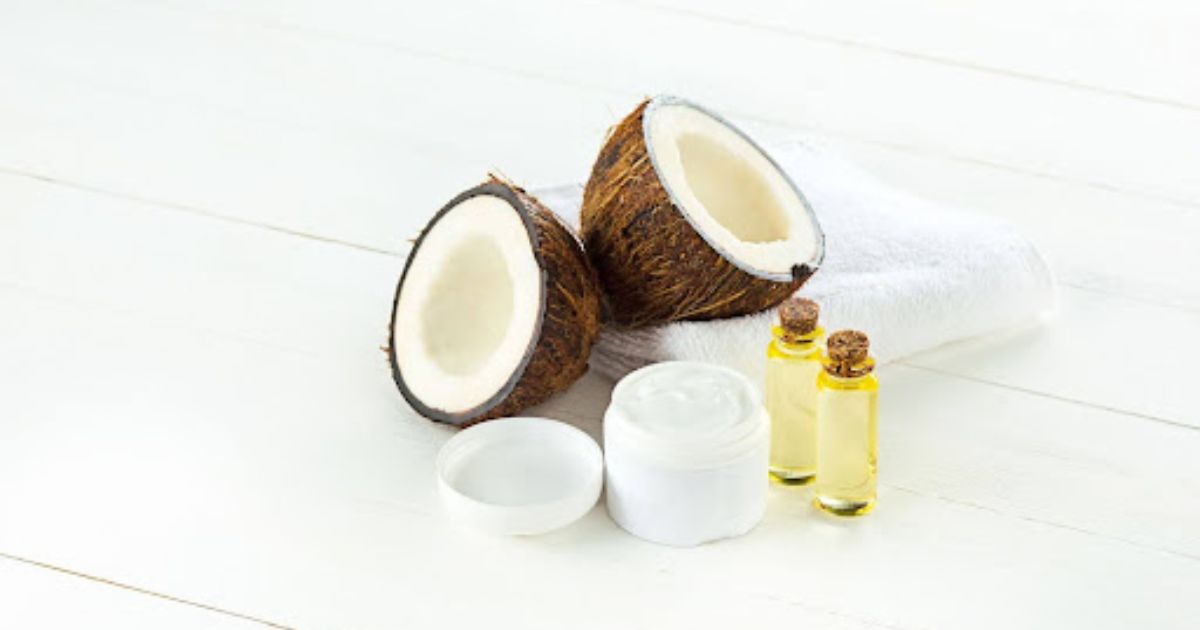As parents, caregivers, or simply individuals who value well-being, finding safe and effective treatments for common health nuisances is always a priority. One such issue that often sends people scouring the internet or pharmacy aisles is head lice. The creepy crawlies not only trigger a sense of unease but also present the challenge of eradication—preferably in a manner that is both safe and effective. While traditional treatments have their merits, there is an increasing interest in natural alternatives. Coconut oil, a household name in the wellness industry, has recently entered the spotlight as a potential answer to this age-old problem. So, let’s delve into the question: Can coconut oil really serve as an effective treatment for lice?
Table of Contents
Why Coconut Oil
Coconut oil has long been valued for a variety of health and beauty applications, ranging from skin moisturizing to cooking. Coconut oil is lauded for its antibacterial and antifungal properties, but it has also garnered attention as a potential lice treatment. Its high lauric acid content imbues it with antibacterial, antifungal, and antiviral properties, making it a natural choice for those interested in holistic remedies. When it comes to lice treatment, coconut oil has several advantages that have led to its increasing popularity:
Suffocation: Coconut oil’s thick consistency is believed to help suffocate lice, essentially clogging their breathing holes, and making it difficult for them to survive.
Slippery: SurfaceThe oil creates a slippery environment, making it easier to comb out lice and their eggs (nits). This can significantly improve the efficacy of mechanical removal techniques, especially when compared to dry or water-wetted hair.
Safe and Natural: Coconut oil is generally recognized as safe for topical application for all age groups, including young children and pregnant women. It’s a chemical-free alternative for those who prefer to steer clear of synthetic pesticides.
Skin and Scalp Benefits: Unlike chemical treatments that can dry out or irritate the skin, coconut oil is also beneficial for the scalp and may even alleviate itching and irritation associated with lice infestations.
Ease of Use: Coconut oil is readily available in most grocery stores and is relatively easy to apply. Typically, it involves massaging the oil into the scalp and hair and letting it sit for several hours or overnight before combing and shampooing.
Complementary Treatment: Many users find it effective when combined with other natural remedies like tea tree oil or used in conjunction with a vinegar rinse to help loosen nits from the hair shaft.
Why Not Coconut Oil?
One of the major caveats to consider is the lack of extensive, conclusive scientific research on the effectiveness of coconut oil for lice treatment. While anecdotal evidence and some small-scale studies suggest it may be beneficial, the overall body of scientific data is still limited. This makes it challenging to establish standardized guidelines for its use in treating lice. Moreover, coconut oil is not FDA-approved for this specific purpose, unlike many chemical treatments that have been rigorously tested for both safety and efficacy.
Another concern lies in the potential for incomplete or ineffective treatment. Head lice are increasingly resistant to many traditional treatments, and it remains uncertain whether coconut oil possesses the potency to fully eradicate an infestation. Incomplete treatments could lead to recurring issues, perpetuating the problem rather than solving it. Practical challenges also exist. The application of coconut oil can be messy and time-consuming, often requiring the oil to remain on the scalp for several hours or overnight. This might not be convenient for everyone and could be particularly challenging for families with young children. Additionally, there’s the extra effort needed to clean up after the treatment, such as washing bedding and possibly treating furniture.
Lastly, while coconut oil is generally considered safe for topical use, it’s always possible for individuals to have allergic reactions to any natural substance. Before proceeding with any alternative treatment, it’s advisable to conduct a patch test and consult healthcare professionals for a comprehensive and tailored treatment plan.
The Verdict On Coconut Oil For Lice Treatment
In summary, coconut oil presents an intriguing, natural alternative for lice treatment, particularly for those who are concerned about the chemical composition of traditional lice shampoos and treatments. The oil’s antibacterial and antifungal properties, combined with its thick consistency, offer the potential advantage of not only suffocating adult lice but also facilitating the easier mechanical removal of both lice and their eggs. Moreover, unlike many chemical treatments, coconut oil is generally recognized as safe for topical use, making it suitable for all age groups, including young children and even pregnant women. The oil’s nourishing qualities can also provide relief from the itchy and irritated scalp conditions that often accompany lice infestations.
However, it’s crucial to approach the idea of using coconut oil as a lice treatment with a measured perspective, taking into account several important caveats. First and foremost, there is a notable lack of large-scale, rigorous scientific research supporting its efficacy in treating lice. Unlike FDA-approved treatments, coconut oil has not undergone extensive testing to verify its effectiveness or to establish standardized treatment protocols. Additionally, practical considerations cannot be overlooked—the process can be both time-consuming and messy, requiring a commitment that may not be practical for busy families.
Given these pros and cons, individuals considering coconut oil as a lice treatment should consult healthcare professionals for a comprehensive diagnosis and treatment plan that is tailored to their specific needs. While coconut oil may serve as part of an integrated approach to lice treatment, it should not be seen as a standalone cure-all, especially in the absence of more conclusive scientific evidence.
The Lice Clinics
While coconut oil is generally considered safe for topical use, it’s always possible for individuals to have allergic reactions to any natural substance, or at the very least, experience disappointing results which only help to worsen the head lice infestation in your home. Before proceeding with any alternative treatment, it’s advisable to consult healthcare professionals for a comprehensive and tailored treatment plan. The Lice Clinics in Greenville, Anderson, and Spartanburg, SC apply the use of their proprietary “Lice Tech” treatment which guarantees 100% lice removal without the use of any chemicals and only one visit. For more information, please visit our website and schedule your first appointment today.



